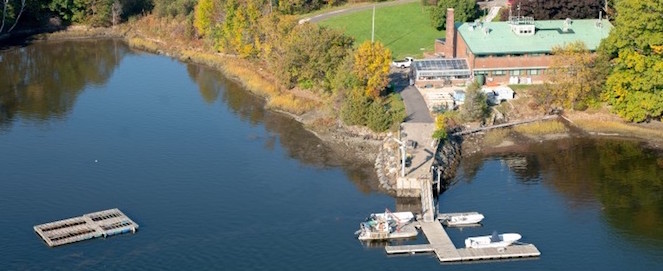
Jackson Estuarine Laboratory
Determining How Soil Amendments Enhance the Recovery of Ammophila breviligulata Following Dune Die-Off Events in Coastal New England
Abstract
Coastal dunes are valued for habitat provision and flood protection. The dominant dune plant in New England, American beachgrass (Ammophila breviligulata) stabilizes dunes by trapping sand and slowing erosion. The system's natural mechanism to stabilize sediment and protect coasts from erosion may be threatened by die-off, a rapidly spreading blight affecting coastal dunes from Maine to Virginia. To determine whether soil amendments could help mitigate die-off and aid recovery, fertilizer and lime were applied to dunes at three sites that had recently been defoliated by die-off and subsequently replanted. The lime+fertilizer treatment resulted in a significantly greater percentage of live plants and percentage of cover of A. breviligulata, as well as greater total plant cover. The combined application of lime and fertilizer may hasten recovery from die-off and improve restoration success in the region.
Publication Date
9-23-2019
Journal Title
Journal of Coastal Research
Publisher
BioOne
Digital Object Identifier (DOI)
Document Type
Article
Recommended Citation
Moore, Gregg; Burdick,David; Payne,Andrew. (2019). DOI: 10.2112/JCOASTRES-D-19-00026.1 Determining How Soil Amendments Enhance the Recovery of Ammophila breviligulata Following Dune Die-Off Events in Coastal New England.
